Storytelling
This past weekend was totally fun. It was mostly family-oriented, as most of our time is.
Saturday morning I went to a lecture/class on storytelling for children. I listened to one of the area’s best storytellers/puppeteers (Karen Vianni) talk about how to tell stories to our kids, why we should do it, and what to tell. Storytelling is big in the Waldorf world, especially for the young child. It is preferred to reading books aloud because the child responds differently to a story that comes from within you, that you create, and because without a book to look at, he can make his own pictures in his head. That exercise is critical for children’s development. Picture-making is thought to be key to problem solving and creative thought.
Vianni says that parents ought not to believe that only traditional stories that have been memorized word-for-word are worthy of telling. Rather, parents should tell stories about the natural worls for stories from their own lives—that children are fascinated by what their parents were like as children, how they grew up, what they did, what grandma and grandpa did, etc.
Because I’m always the class blabbermouth, I mentioned that you don’t have to tell your kids only the exciting stories—the ones with the crisis and climax—for they are often too intense. Lucas doesn’t want to hear about how Little Girl Sara Got Trapped by the Snake and Couldn’t Get Home. It’s too scary! I learned that the hard way because I told that story to him when he was maybe three. I was used to the traditional dramatic structure that we all expect from our entertainment: exposition, rising action, climax, falling action, then denouement or catastrophe. I thought I had to make it exciting for him. “Please, don’t” was basically the reaction I got.
I’ve been practicing a little here and a little there for a few years now. I don’t do it all the time, but I do it now a lot more often. I started telling Lucas stories that are more about everyday things, like about going to school as a child or picking oranges off our tree in the backyard with my brother, or special things like when I came home from school and my mother had all the ingredients for making cookies out on the table and ready to go. You know, stories that are pictures of life—pretty similar to the way Lucas lives, but with small differences that are interesting to him.
I also tell him stories about his own life, about things that happened last year or even yesterday. I don’t actually name the characters (us), but just say things like “there was a mommy, a daddy, a big brother, and a baby brother” and take it from there. And often when I’m finished telling the story, he says with great warmth in his voice, “Mommy, that was a story about me, wasn’t it.” And I say, “Yes, dear. It was.”
I’m not an educator or an expert in child development, so I don’t really know how memory works in children his age, but I do know that Lucas is old enough to remember things from his own life now. I hope that by telling him about things that happen in our lives—mostly happy, everyday things—perhaps somehow these events and feelings will sink deeply into his psyche and slosh around in his unconscious. I hope that from his own inner well of memories he will someday be able to pull stories of his own to tell his own children, or even to me in my dotage.
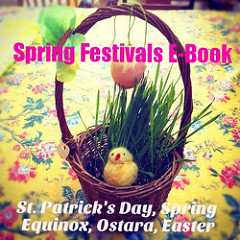
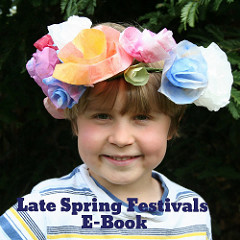

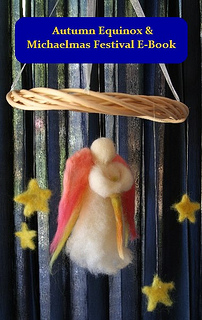
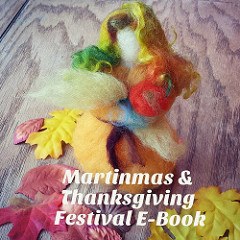
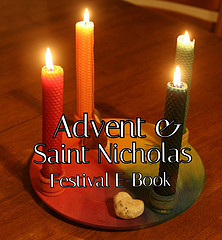
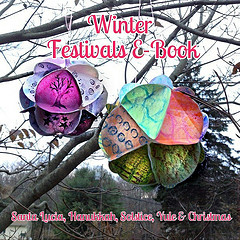

March 21, 2008 at 8:22 am
This is going to sound silly, but I love reading about how much love and attention and focus you place on Lucas; a little (young) part of me is always very moved. But my breath isn’t very crackery, so there you go.
You have such a great creative sense, and I love reading about how you knit that together with being a parent — whether that’s singing songs or painting or making dolls or making up stories.
I hope you know I really admire the mom you are and the mom you create as you go forward with your boys. I love you!
March 21, 2008 at 11:01 am
That’s wonderful. Asher and Lucas and the other children you know are so lucky in you. My parents generally used books rather than biographical stories. I know so few stories about what their lives were like growing up — most of what I do know comes from my mother’s sisters. I would love to know more.
One of the best counterexamples to that general trend was at a family reunion many years back, where my grandfather’s large family of brothers and sisters all gathered with their children and grandchildren, and they sat around and told stories. Each couple took their turn describing how they met, fell in love, and married. Each sibling took a turn and told a story from their childhood — often they were telling stories on each other: the time Oskar fell into the pig pen, the time Olga borrowed her coveted sister’s dress and went to school in it, and numerous tales of what growing up during the depression were like. That night stands out as the richest of memories and the strongest connection I have ever felt to my family history. Most of that generation has died and left us behind, but thanks to their sharing, we still have some of their stories left in us.
March 22, 2008 at 1:27 am
Thank you so much. It means so much to me to hear you say that, for you are a very keen and intuitive observer. If you see it, then it must be there. That reassures me and gives me joy. It’s truly the hardest work I’ve ever done.
March 22, 2008 at 1:30 am
I know what you mean! My first inclination is always to turn toward books—I absolutely adore them. But I’m slowly coming to believe the Waldorf gurus when they say it is a very different thing for a child to experience a story that is created right before them, for them, and that comes through a human vessel.
I wish I knew more about my family history as well. So many gaps! And my memory isn’t what it ought to be, so even snippets of information or brief family stories fade away with time. I’m glad you have that family reunion experience to cherish.